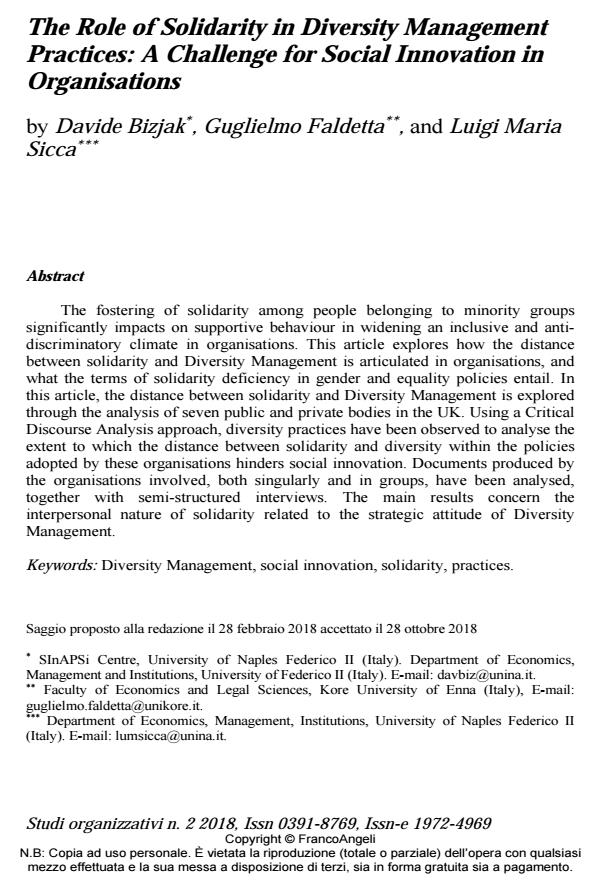The Role of Solidarity in Diversity Management Practices: A Challenge for Social Innovation in Organisations
Journal title STUDI ORGANIZZATIVI
Author/s Davide Bizjak, Guglielmo Faldetta, Luigi Maria Sicca
Publishing Year 2019 Issue 2018/2
Language English Pages 17 P. 130-146 File size 237 KB
DOI 10.3280/SO2018-002006
DOI is like a bar code for intellectual property: to have more infomation
click here
Below, you can see the article first page
If you want to buy this article in PDF format, you can do it, following the instructions to buy download credits

FrancoAngeli is member of Publishers International Linking Association, Inc (PILA), a not-for-profit association which run the CrossRef service enabling links to and from online scholarly content.
The fostering of solidarity among people belonging to minority groups significantly impacts on supportive behaviour in widening an inclusive and anti-discriminatory climate in organisations. This article explores how the distance between solidarity and Diversity Management is articulated in organisations, and what the terms of solidarity deficiency in gender and equality policies entail. In this article, the distance between solidarity and Diversity Management is explored through the analysis of seven public and private bodies in the UK. Using a Critical Discourse Analysis approach, diversity practices have been observed to analyse the extent to which the distance between solidarity and diversity within the policies adopted by these organisations hinders social innovation. Documents produced by the organisations involved, both singularly and in groups, have been analysed, together with semi-structured interviews. The main results concern the interpersonal nature of solidarity related to the strategic attitude of Diversity Management.
Keywords: Diversity Management, social innovation, solidarity, practices.
Davide Bizjak, Guglielmo Faldetta, Luigi Maria Sicca, The Role of Solidarity in Diversity Management Practices: A Challenge for Social Innovation in Organisations in "STUDI ORGANIZZATIVI " 2/2018, pp 130-146, DOI: 10.3280/SO2018-002006